Gold, economics, and finance have always played a central role in the development of civilizations, influencing political choices, wars, and innovations. From ancient times to the modern era, philosophers, economists, and leaders have reflected on the value of money, wealth, and the dynamics of markets.
Historical quotes offer insight into different views on economic stability, financial speculation, and the role of gold as a safe haven. These timeless quotes help us better understand the deep connection between finance and society, revealing how economic thinking has evolved over time.
Contents

#1. Antiquity and classical philosophy
Classical Antiquity saw the birth of the first great organized civilizations and the flourishing of philosophical, political, and scientific thought. Ancient Greece developed democracy, theater, and philosophy with figures such as Plato, Aristotle, and Socrates, while the Roman Empire consolidated a vast political, legal, and infrastructural system. Polytheistic religions dominated, but with the spread of Christianity, the ancient world began a profound cultural change. Constant warfare and economic crisis eventually contributed to the fall of the Western Roman Empire in 476 AD, marking the transition to the Middle Ages.
Pythagoras (570-495 BC)
Founder of the Pythagorean school, he developed mathematical and philosophical concepts based on the harmony of the universe. He believed in reincarnation and the importance of numbers as the principle of existence. His thought profoundly influenced Greek philosophy and Western science.
Gold is tested by fire, woman by gold, and man by woman.
The quote reflects his symbolic thought. As fire purifies gold, so difficulties reveal the true value of people. The phrase emphasizes the need for trials in life to strengthen character.
Confucius (551-479 BC)
A master of Eastern thought, he developed an ethical code based on morality, respect, and social harmony. He traveled throughout China promoting his teachings, which became the basis of Confucian culture. His impact is still visible today in Asian philosophy and society.
The superior man is modest in words, excellent in actions.
It highlights the idea that material wealth should not prevail over ethical values. For Confucius, true greatness lies in wisdom and integrity, not in wealth, a fundamental concept in his teaching.
Euripides (480-406 BC)
He was one of the three great tragedians of ancient Greece. His works, often critical of society, explored human psychology and the conflict between emotion and rationality. His tragedies were distinguished by their realism and the humanization of the characters.
Gifts persuade even the gods, and gold is stronger than endless speeches for mortals.
He emphasizes the corrupting power of wealth. His theater often staged the conflict between morality and interest, denouncing how greed can overwhelm justice.
Sophocles (497-406 BC)
He wrote over 120 tragedies, introducing dramatic innovations such as the third actor and more complex sets. His works explored the relationship between man and destiny, with protagonists forced to confront the will of God. He was highly regarded in his time.
Gold is the cause of much ruin to men; it brings with it both salvation and destruction.
It highlights the dual nature of wealth. In ancient Greece, the desire for gold led to war and betrayal, showing how greed was a destructive force.
Socrates (469-399 BC)
Socrates was a Greek philosopher considered the father of Western thought. His philosophy was based on the search for truth and self-knowledge through dialogue.
The richest man is he who knows how to be content with the least.
He believed that true wealth does not come from accumulating material goods, but from the ability to live with the essentials. This quote contrasts with modern consumer culture, suggesting that satisfaction and happiness are not found in monetary wealth, but in the ability to limit one’s desires.
Democritus (460-370 BC)
Known as the “laughing philosopher,” he was the father of atomism, theorizing that all matter is composed of indivisible particles. He was a materialist thinker who sought to explain the universe without resorting to divine explanations. His ideas anticipated modern science.
Happiness does not reside in the possession of gold, happiness dwells in the soul.
It reflects his belief that inner peace and knowledge are superior to material wealth. Democritus taught that happiness depends on how we perceive the world, not on the goods we possess.
Plato (428-348 BC)
A student of Socrates and teacher of Aristotle, he founded the Academy of Athens. His works, written in the form of dialogues, explore themes such as justice, politics and knowledge. His thought has profoundly influenced Western philosophy.
All the gold that is under or above the earth is not worth as much as virtue.
He expresses his belief that moral values and wisdom are superior to wealth. Plato envisioned a society led by philosophers, where knowledge was more important than gold.
Aristotle (384-322 BC)
A student of Plato and tutor of Alexander the Great, he was an encyclopedic thinker who influenced science, ethics, and politics. He founded the Lyceum, where he developed the empirical method based on observation. His impact extended into the Middle Ages.
Gold is the least useful of all metals, but the most desired.
It highlights the paradox of wealth. Aristotle emphasizes how the value of gold is purely symbolic, since it has no practical function like other metals, but its possession generates power.
Marcus Tullius Cicero (106-43 BC)
He was one of the greatest orators of ancient Rome, as well as a philosopher and consul. He fought to defend the Republic against the rise of Julius Caesar, but was ultimately executed. His works have left a lasting impression on Western thought.
When gold speaks, even reason is of no use.
He denounces the corrupting power of money. In Republican Rome, wealth influenced politics and justice, demonstrating that rationality was often subjected to economic interest.
Seneca (4 BC-65 AD)
An exponent of stoicism, advisor to the emperor Nero, he wrote works on morality and the pursuit of virtue. He eventually fell from grace and was forced to commit suicide. His thought influenced Christian philosophy and the Renaissance.
Gold opens all doors.
It highlights how wealth is an instrument of power in every age. Although he was a stoic and preached detachment from material goods, Seneca recognized that in social reality gold allowed one to obtain favors and privileges.
Publilius Syrus (85-43 BC)
He was a freed slave who became a celebrated author of maxims and aphorisms. His works offered moral and practical teachings, in a sharp and direct style. He was highly regarded in Roman circles.
Gold is tested by fire, man by adversity.
It emphasizes the value of trials in life. Just as gold is purified by heat, a human being improves by facing difficulties.

#2. Middle Ages and Renaissance
The Middle Ages were a time of strong social hierarchies, with feudalism as the dominant system. The Catholic Church exercised great political and cultural influence, while wars, such as the Crusades, profoundly affected Europe. The economy was predominantly agricultural, but between the 12th and 14th centuries, trade and cities began to develop, preparing the ground for the Renaissance. Events such as the Black Death (1347-1351) and the Hundred Years’ War upset the population, accelerating social changes.
The Renaissance was a time of cultural, artistic and scientific rebirth, with a return to the classical values of Greece and Rome. Humanist thought and the centrality of man developed, while geographical discoveries such as those of Christopher Columbus (1492) expanded the known world. Art reached extraordinary levels with Leonardo da Vinci, Michelangelo and Raphael, and the Protestant Reformation of Martin Luther (1517) broke the unity of the Church. This period marked the transition from the medieval to the modern world, favoring the birth of new national states and scientific revolutions.
Dante Alighieri (1265-1321)
Born in Florence, he was exiled for political reasons and wrote the Divine Comedy , one of the masterpieces of world literature. His work describes an allegorical journey through Hell, Purgatory and Paradise, with strong criticism of the corruption and greed of his time. He died in exile in Ravenna.
Alas, servant Italy, hostel of sorrow, ship without a helmsman in a great storm, not a lady of the provinces, but a brothel!
He criticizes the divided and corrupt Italy of the 14th century. Dante uses the concept of gold and wealth to denounce the greed of the powerful, guilty of having destroyed the country for the lust for money and power.
Thomas Aquinas (1225-1274)
Dominican monk and one of the greatest Christian thinkers, he developed the Summa Theologiae , uniting Aristotelian philosophy with Christian theology. His ideas profoundly influenced scholasticism and Catholic doctrine. He was canonized in 1323.
Gold is good if used well, but it becomes the worst of evils if it possesses a man’s soul.
It reflects Christian thought on the moral use of wealth. Gold is not in itself negative, but it can corrupt those who make an idol of it, distancing them from faith and justice.
Christopher Columbus (1451-1506)
He was the first European to reach the Americas in 1492 under the patronage of Spain. His voyage marked the beginning of European colonization of the New World. He died believing he had discovered a new route to Asia, unaware that he had revealed a continent.
He who has gold does and achieves whatever he wants in the world and ultimately uses it to send souls to heaven.
It reflects the mentality of the time. For Columbus, gold was not only a means of personal wealth, but also a way to finance the Church and religious missions, converting indigenous peoples to Christianity. The quote highlights how the gold rush was also justified with spiritual motivations.
Erasmus of Rotterdam (1466-1536)
A humanist philosopher and writer, he promoted freedom of thought and the reform of the Church without breaking with Rome. He was the author of In Praise of Folly , a satirical work against ecclesiastical corruption. His work influenced Renaissance thought.
When gold speaks, eloquence is powerless.
He denounces the power of money in determining politics and justice. In the Renaissance, wealth often determined the fate of men more than wisdom or the right words.
Niccolo Machiavelli (1469-1527)
Secretary of the Florentine Republic, he wrote The Prince , a political treatise in which he analyses power without moral constraints. His ideas influenced modern politics, with a realism often interpreted as cynicism. He died in poverty, never fully rehabilitated.
Gold is the sinew of war.
It expresses a historical truth: military power depends on economic resources. Machiavelli, witness to struggles for domination in Italy, knew that without gold one could not support armies or conquer power.
Martin Luther (1483-1546)
Founder of the Protestant Reformation, he contested the sale of indulgences with his 95 theses (1517), starting a rift with the Catholic Church. His ideas led to the birth of Protestantism and the end of the Catholic monopoly in Europe.
Gold is the god of the world.
He criticizes the greed of the Church and the powerful of the time. For Luther, salvation could not be bought with gold, and wealth should not be the ultimate goal of society.
Michel de Montaigne (1533-1592)
A precursor of modern humanism, he wrote the famous Essays , works in which he analyzed human behavior with a free and reflective style. He was a skeptical thinker, far from the religious and political extremism of his time.
The greed for gold is more ferocious than hunger.
It indicates that the desire for wealth is insatiable. Montaigne observed that wars and injustices were often motivated by greed rather than necessity.

#3. Modern Age and Enlightenment
The Modern Age saw the rise of nation states and absolute monarchies, with rulers such as Louis XIV of France concentrating power in their hands. European colonial expansion transformed trade and the economy, while the Scientific Revolution (Galileo, Newton) revolutionized knowledge. Mercantilism became the dominant economic model, reinforcing the link between wealth and power.
The Enlightenment (18th century) brought a new conception of politics and society, based on reason and progress. Philosophers such as Voltaire, Montesquieu and Rousseau criticized absolutism and religious fanaticism, promoting the separation of powers and the rights of man. Their ideas inspired crucial events such as the American Revolution (1776) and the French Revolution (1789), marking the end of the Ancien Régime and the beginning of the contemporary era.
William Shakespeare (1564-1616)
Author of immortal masterpieces such as Hamlet , Macbeth and Romeo and Juliet , he is the greatest playwright in history. His texts explore universal themes such as power, revenge and love. His theatre continues to influence modern culture.
Gold and diamonds have a silent eloquence that moves a woman’s heart much more than fine speeches.
He denounces the transformative power of gold. In his time, wealth changed the perception of reality, altering values and social hierarchies.
Francis Bacon (1561-1626)
Considered the father of the scientific method, he was a pioneer of empirical thought. He held high political office under James I, but fell from grace for corruption. His intellectual legacy influenced modern science.
Gold is a great temptation, but knowledge is the true power.
He highlighted the contrast between material wealth and knowledge because he argued that science and reason would give man more control over the world than gold itself.
Money is a good servant but a bad master.
It highlights the double face of money: it can be a powerful tool to improve people’s lives, but if left unchecked, it can turn into an obsession that dominates and ruins lives. This reflection remains relevant in an era where money governs most individual and collective choices.
Thomas Hobbes (1588-1679)
Hobbes was one of the fathers of modern political thought. He argued that the state must have absolute power to ensure order and security. He lived in a period of civil wars, which influenced his concept of a society based on a social contract.
Wealth is power, and gold is its embodiment.
It emphasizes the economic role of power. In an era of absolute monarchies and nascent capitalism, wealth became the main instrument for controlling society.
Isaac Newton (1643-1727)
He discovered the law of universal gravitation and formulated the laws of dynamics. In addition to science, he was interested in alchemy and contributed to the reform of the British monetary system. His work profoundly influenced modern physics.
I do not know how the world will see me, but I look upon myself as a boy playing on the seashore, discovering a smoother pebble or a prettier shell than usual, while the ocean of truth lay undiscovered before me.
It reflects his humility and awareness of the infinity of knowledge. Despite his influence on stabilizing the value of gold, Newton recognized that true wealth was scientific discovery.
Voltaire (1694-1778)
A master of criticism and rational thought, he attacked religious fanaticism and monarchical absolutism. His works influenced the French Revolution and the modern conception of freedom of thought.
Gold is the god of the world.
He denounces the materialism of his time. Voltaire saw gold as an idol worshipped by all, more powerful than religion or morality.
Benjamin Franklin (1706-1790)
One of the key figures in American Independence, he was a diplomat, editor, and scientist. He contributed to the writing of the Declaration of Independence and to the advancement of electricity with his experiments on lightning.
Gold and silver have their uses, but it is knowledge that brings true power.
It reflects his belief that education and knowledge are more fundamental to the progress of society than money.
Adam Smith (1723-1790)
Adam Smith was a Scottish economist and philosopher, considered the father of modern economics. His book “The Wealth of Nations” laid the foundations of economic liberalism.
Government spending can never be a lasting solution.
He argued that excessive state intervention in the economy was harmful to growth. This statement reflects his thinking on the need to leave room for the “invisible hand” of the market to foster sustainable economic development, a theme still at the center of the debate between liberalism and state interventionism.

#4. Industrial Revolution and 19th Century
The Industrial Revolution (18th – 19th century) radically transformed the economy and society, marking the transition from an agricultural system to one based on industry and mechanization. Born in Great Britain with the introduction of the steam engine (James Watt) and the mechanical loom, it spread rapidly throughout Europe and the United States. Cities grew, giving rise to the first industrial metropolises, while mass work led to severe social conditions, with the exploitation of the working class.
The 19th century was marked by profound political and social changes. The Revolutions of 1848 led to the growth of nationalism and democracy, while imperialism pushed European powers to colonize Asia and Africa. The ideas of Karl Marx challenged capitalism with the rise of the socialist movement, while the Second Industrial Revolution brought innovations such as electricity and the internal combustion engine. Towards the end of the century, the world entered a phase of intense economic and military competition, setting the stage for the 20th century and the great world conflicts.
Mayer Amschel Rothschild (1744-1812)
Mayer Amschel Rothschild was a German banker, founder of the Rothschild banking dynasty, one of the most influential in the history of world finance.
Give me control of a nation’s currency and I don’t care who makes the laws.
This phrase expresses the immense power that comes from controlling a country’s currency. It is often cited in debates about central banks and monetary sovereignty, as it highlights how the issuance and management of money are instruments of political and economic domination.
Napoleon Bonaparte (1769-1821)
He became Emperor of France after the Revolution, conquering much of Europe. His strategic skill and his code of laws influenced modern history. He was defeated at Waterloo and died in exile.
Gold is the sword of justice.
He expresses his belief that war and power are based on wealth. Without funding, no army can fight, and money determines the outcome of wars.
Friedrich Hebbel (1813-1863)
He wrote dramas that explored the human condition and the struggle between fate and freedom. He was known for his pessimism and interest in human passions.
All that glitters is not gold; but it should be equally added that all that is gold is not gold either.
A reflection on the falsity of appearances. Gold is a symbol of wealth, but it does not always bring happiness.
Karl Marx (1818-1883)
Founder of modern communism, he analyzed capitalism and class struggle. His theories influenced revolutions and political movements in the 20th century.
Gold and silver are money by nature.
It reflects his analysis of economic value. Marx recognized the historical importance of gold, but argued that true wealth came from labor.
Friedrich Nietzsche (1844-1900)
A critic of religion and traditional morality, he developed the concept of the “superman.” He died alone after years of mental illness.
How did gold come to have the greatest value? Because it is not vulgar, it is not useful and it shines with a gentle splendor; it always gives of itself.
Highlights the symbolic value of gold. Nietzsche sees it as an illusion created by society.

#5. 20th and 21st Century
The 20th century was marked by dramatic events and epochal transformations. The two world wars (1914-1918, 1939-1945) shook the world, leading to the decline of colonial empires and the rise of new powers such as the United States and the Soviet Union. After 1945, the Cold War divided the world into two blocs, with the confrontation between capitalism and communism. The market economy expanded, while scientific progress led to technological revolutions such as information technology and space. The fall of the Berlin Wall (1989) marked the end of the USSR and the beginning of globalization.
The 21st century is characterized by total digitalization, the development of artificial intelligence, and global challenges such as climate change and economic crises. Geopolitics has become increasingly complex, with the strengthening of new powers such as China and India, and the interconnected world faces problems related to cybersecurity and social inequalities. Science continues to advance with medicine, robotics, and space exploration, while the balance between progress and sustainability will be the central challenge of the future.
Albert Einstein (1879-1955)
Albert Einstein was a German-born theoretical physicist, known for his theory of relativity and his contributions to quantum mechanics. He was awarded the Nobel Prize in Physics in 1921.
Compound interest is the eighth wonder of the world.
He was not an economist, but he understood the power of compound interest, a fundamental concept in finance. Reinvesting the interest earned over time allows you to accumulate wealth exponentially. This phrase is often quoted to emphasize the importance of saving and investing for the long term.
Napoleon Hill (1883-1970)
Author of Think and Grow Rich , a book that influenced the world of personal growth and finance. He believed in the importance of positive thinking.
More gold has been mined from the thoughts of men than has ever been mined from the earth.
It reflects his belief that true wealth comes from ideas and determination.
John Maynard Keynes (1883-1946)
He revolutionized economics by proposing government intervention to stabilize markets. His theories inspired economic policies of the 20th century.
Gold is a barbaric relic.
Criticizes the gold standard. Keynes argued that gold was no longer necessary to ensure economic stability.
Markets can remain irrational longer than you can remain solvent.
Warns investors of the dangers of speculation. Even if you believe a stock is overvalued or undervalued, the market may continue to move illogically for an unpredictable period of time, causing serious losses to those who invest too early.
Winston Churchill (1874-1965)
A statesman, writer and orator, Churchill led the United Kingdom against Nazi Germany. He won the Nobel Prize for Literature and remained a central figure in British politics for over fifty years. His leadership was crucial to the Allied victory.
The magic of gold is a trap for fools.
It reflects his pragmatic view on wealth. For Churchill, gold and money could deceive, making people believe that material well-being was the key to happiness, while it was determination that gave true value to life.
Alan Greenspan (1926-living)
Head of the Fed for nearly two decades, he guided US monetary policy. He was criticized for his role in the 2008 crisis.
Deficit spending is simply a system for the hidden confiscation of wealth. Gold hinders this insidious process. It stands as a protection of property rights.
Highlights gold’s role as a hedge against inflation and damaging economic policies.
Frank Borman (1928-living)
Frank Borman is a former American astronaut and business executive, best known for the Apollo 8 mission, the first to orbit the Moon.
Capitalism without failure is like Christianity without hell.
It highlights the need for a competitive market in which inefficient firms can fail. Without the possibility of failure, capitalism would lose its main engine: the natural selection of the strongest and most innovative firms.
Warren Buffett (1930-living)
Warren Buffett is an American investor and entrepreneur, considered one of the greatest investors of all time and CEO of Berkshire Hathaway.
Wall Street is the only place where people drive up in Rolls-Royces to ask subway riders for advice.
He highlights the irony of the financial market: those who possess enormous wealth often seek advice from traders who, paradoxically, have not accumulated personal fortunes. His message emphasizes that financial knowledge is not measured only by accumulated wealth, but by the ability to correctly interpret the markets.
John Updike (1932-2009)
Considered one of the greatest American authors of the twentieth century, he wrote novels, poems and essays. His best-known work is the Rabbit series , which examines the life of the American middle class. He won the Pulitzer Prize twice.
The beauty of gold is that it loves bad news.
Highlights the role of gold as a safe haven. Updike alludes to the fact that in times of economic or political crisis, the value of gold increases, as people consider it a safe haven in times of uncertainty.
Harry Browne (1933-2006)
Libertarian economist and presidential candidate for the Libertarian Party in the United States, he was the author of several books on finance, including How You Can Profit from the Coming Devaluation and Fail-Safe Investing . He was one of the most well-known advocates of gold as a means of protection against economic crises and currency devaluation.
When paper money systems begin to fail, the gold rush could be explosive.
It reflects his belief that government-issued currencies are prone to instability. According to Browne, in times of crisis and inflation, investors flee to gold as the only safe haven, since it cannot be manipulated or printed by central banks.
Michael Belkin (1945-living)
An expert in financial markets, he is the creator of the Belkin Report , an analysis service followed by leading global investors. A former vice president of the investment bank Salomon Brothers, he is known for his predictions on market crashes and his contrarian view of dominant narratives.
Debtors will default. Markets will crash. Gold (the only safe money) will skyrocket.
It reflects a pessimistic but realistic perspective on the fragility of the modern financial system. Belkin warns that, in times of debt crisis, investors abandon risky assets and take refuge in gold, considered an asset without the risk of default.
Ray Dalio (1949-living)
One of the most influential hedge fund managers in history, he founded Bridgewater Associates, one of the world’s largest investment funds. Known for his investment philosophy based on economic cycles, he wrote Principles: Life & Work , a bestseller that explains his approach to finance and life.
If you don’t own gold, you don’t know history or economics.
It highlights the importance of gold as a fundamental element in the global financial system. Dalio suggests that past economic crises demonstrate the value of gold as a hedge against inflation and the loss of purchasing power of currencies.
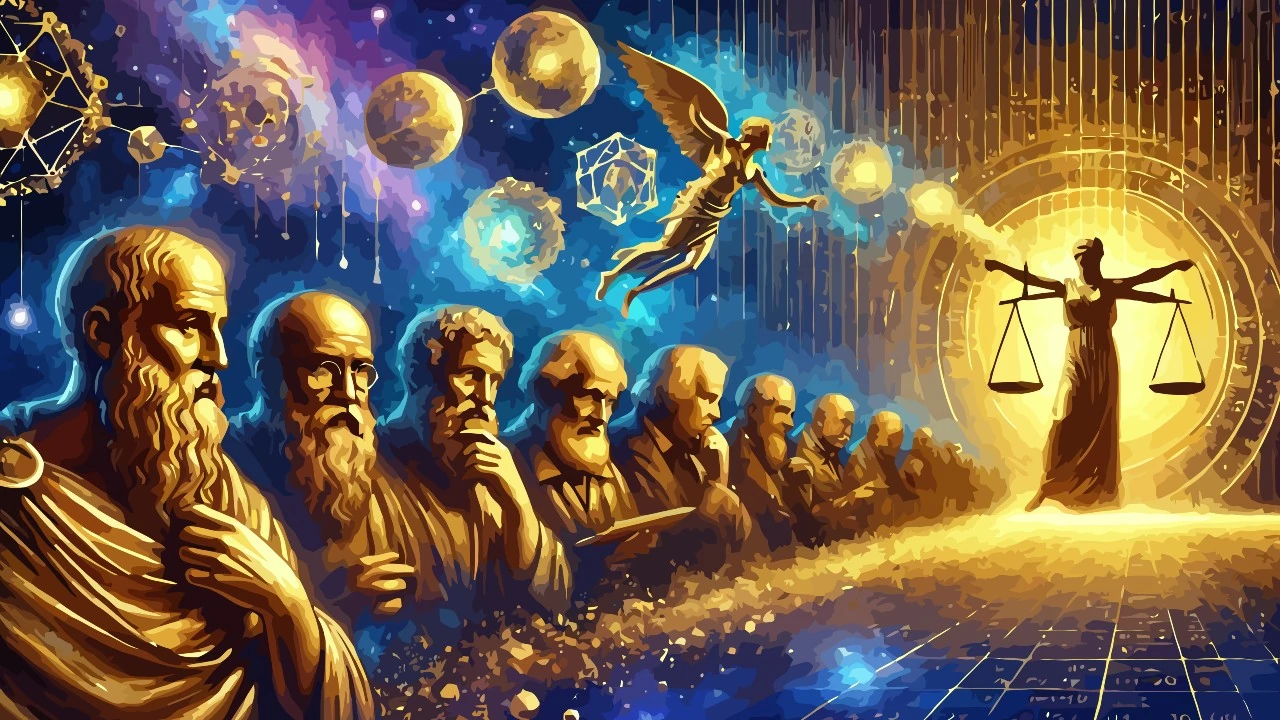
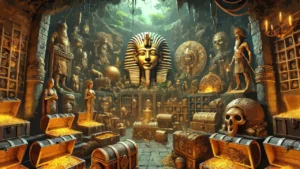



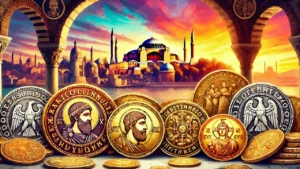
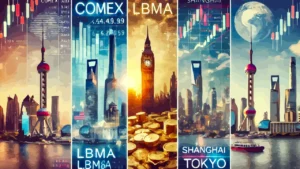
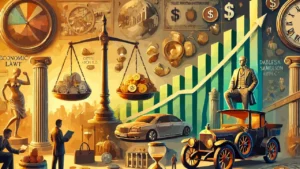

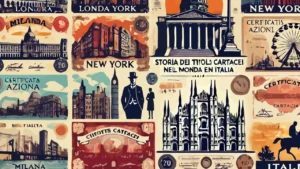
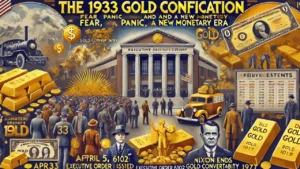
Leave a Reply